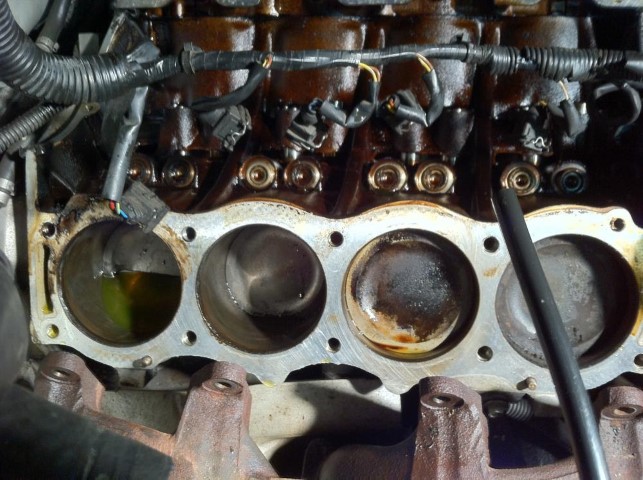
A cracked engine block can spell a lot of trouble for a car owner. This will render your car undriveable and more than likely lead to a huge repair bill. There are some things that you can do to minimize the expense associated with a cracked block, and you do have other options besides repair. If you suspect your car could have a cracked engine block then this article will help you decide on the best thing to do in that situation.
Causes of a Cracked Engine Block
Thankfully, engine blocks do not fail very often. They are designed and manufactured to last for the lifetime of the vehicle. They are typically made from durable metal such as iron or aluminum. However, there are instances where they fail or crack, and this can be detrimental to your vehicle.
The most common cause of an engine block crack is excess heat. As your car runs and drives, the engine becomes very hot. This causes the metal to expand and then return to its original state as it cools down. When the engine overheats, the thin passages in the block expand beyond safe limits, and this over-expansion and contraction can lead to thin cracks forming in the metal. Another cause of a cracked block is excess pressure, usually when a supercharger or some other performance enhancing parts are added. A crack from excess pressure usually happens suddenly and violently.
Cracked Engine Block Symptoms
If you notice any of the following symptoms, then you should stop driving your car immediately. If you continue to drive the car with a cracked block, then you will cause more damage and make your repair bill even higher. Get it checked by a mechanic right away to verify the cracked block, and then you can decide how to proceed. First, if you notice fluid leaks from the engine, this can signal a cracked block. Oil and coolant should not be leaking from your engine, and if they are, you might have a crack.
Next, if you notice smoke coming from your engine bay, this could signal a problem. This likely means that oil or coolant is leaking onto the outside of the engine block and then burning off from the heat. Finally, if you notice that your oil and coolant have become mixed, this definitely signals a problem. If your oil appears milky and frothy or your coolant is dark and murky, then a crack is probably allowing these two fluids to mix inside your engine block. While there are a few other symptoms, these are the big three. So, now what?
You Have a Cracked Engine Block – Now What?
The answer to this question probably depends on the severity of the crack and how much longer you plan to keep the car. Repairing an engine block can be expensive, so you want to make sure your investment is worth it. If you can catch the crack early enough while it is still very minor, then you might be able to make the repair with a sealant instead of replacement of the whole block. This kind of repair is much quicker and cheaper than an engine block replacement.
If you do need to replace the engine block, then expect the repair to take a week or two and cost anywhere from $3,000 – $5,000. This repair requires a lot of time and expertise from an experienced mechanic. The engine must be completely removed from the vehicle, parts transferred to the new block, and then re-installed in the vehicle. If you don’t plan on keeping the vehicle much longer anyway or if it is old and not worth the money, then selling your car might be easier. Find a car buying service who will pay you cash regardless of its condition, and you will not have to worry about making the repair. You can put a little extra money in your pocket and use that as a down payment on a new vehicle.
Conclusion
A cracked engine block is no fun and can be a huge expense on your budget. Make sure that you know the signs of a cracked block so that you can immediately get your car off the road before you do additional damage. Assess the extent of the repair needed and then make a decision about the best next steps for your situation. While a cracked block is still bad, it does not have to be the end of the world if you know how to handle it.










